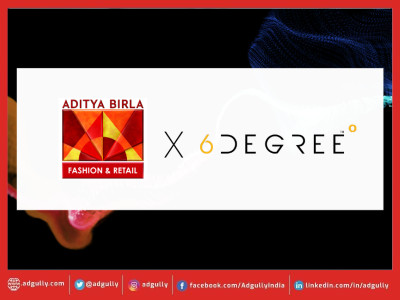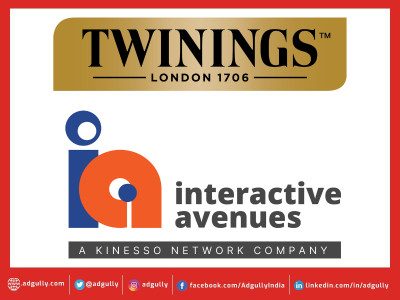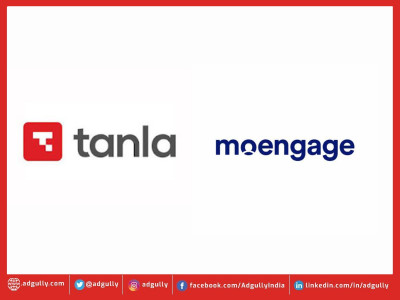Alibaba has digitised the entire lifecycle of consumer brand relationship: Chris Tung
Posting strong year on year revenue growth, Alibaba today has grown much beyond its e-commerce origins. While speaking on Alibaba’s model for brand growth, its Chief Marketing Officer, Chris Tung, said, “Alibaba is now combination of Amazon + Facebook + Google and has built a strong ecosystem of brand building for the future.”
Tung further added, “Alibaba is uniquely positioned as provider of a single source of consumer truth by digitalising the entire lifecycle of consumer brand relationship.”
Tung noted that as we approach a new decade, what were once predictions are a reality today. Some of these include – India enjoys a demographic dividend, smartphone & internet penetration is constantly growing, consumer appetite is expanding beyond established markets and coming from emerging India as well. “Additionally, India is now the fastest growing economy in the world. This bodes well when you weigh the potential of the market. What comes next is attracting audiences and making it easier for brands to reach consumers,” he added.
Speaking at the 44th IAA World Congress in Kochi, Tung stressed that brands need to do much more in the digital age in order to enter a consumer’s discovery cycle that straddles Awareness, Interest, Purchase, and then Loyalty. He noted, “The need is for a cohesive, evolving, data-led ecosystem that involves content marketing, understanding consumption patterns, lifestyle preferences, and more. Through this data-led engagement, brands have the opportunity to become far more relevant to their target audiences. The data-led model allows for brands to experiment with campaigns readily and sometimes even optimise entire marketing strategies for customer acquisition.”
Speaking about Alibaba, Tung said that the e-commerce company has been instrumental in achieving a data-led model, which it terms as uni-marketing, that allows brands access to insights based on data that are anonymised and aggregated down segments that number one million in size. This allows for a test-bed that at the very least has a million users. And the results have been promising for Alibaba and the brands that leverage its platforms.
Alibaba has reported a 50 per cent year on year revenue growth. For brands that leverage a data-led approach championed through uni-marketing at Alibaba, in some cases, the time to launch has come down to nine months from 18 months. There are more top-sellers per brand today across categories. The real power of uni-marketing shone through with an insight provided to Mars Inc., wherein Alibaba suggested a chilli-infused chocolate treat to the global confectioner. The result? Between August 2017 and March 2018, sales of Snickers Spicy surpassed $1.43 million with a 92 per cent satisfaction rating among consumers.
“That’s just the success of one product and one brand. When you scale this data-led engine out to engage with millions of users – what you arrive at is an e-commerce platform that brings brands and consumers closer to each other and a record sitting $30.8 billion Singles’ Day in 2018. To break that down further – that’s the ability to drive 300,000 transactions per second,” Tung informed.
Adgully caught up with Chris Tung, CMO, Alibaba, on his maiden visit to India, to more about their uni-marketing strategy and how it has been helping both Alibaba and the brands on the platform register impressive growth. Excerpts:
Could you simplify Alibaba’s Uni-marketing strategy for us?
It is basically a marketing system that we built to support a brand to do marketing in a new way with the help of data and data technology at Alibaba. The difference is that the system captures all the consumers’ behaviour throughout their path to purchase cycles. You get the visibility, diagnosis and accessibility for the groups that you want to talk to all along the cycle instead of treating it in different ways, which is the case for most of the marketing practices.
How can Indian e-commerce players optimise their customer engagement?
It may not be the same piece because it has something to do with the business model. Alibaba’s business model is not to buy products from the makers and sell them at a margin. We actually run a platform that allows the brands to build their own flagship stores online. Therefore, it makes all the more sense for us to persuade them to do their brand marketing on our uni-marketing system, because it’s their brand and their consumer that they want to engage. Most of the other e-commerce companies are like distributers – they buy and sell. So, the brand will not have the incentive to do brand building on the platform. It is a transactional model and so they don’t care, they just want to sell.
Can Indian e-commerce players up the ante if they apply the principle of Alibaba’s uni-marketing system?
It is a bigger question. It may be easier for them to do the buy/sell model to make money. That’s why a lot of companies chose to do it that way. We chose to do an enabling model from day one because that’s our company philosophy. We believe this is a scalable plane. It is proven now that Alibaba is very big, because the marketplace model has no ceiling. Everybody can join. All the brands in the world can do business on our platform. But in the buy/sell model, if the product does not go, then you will not buy, thus brands will not sell. That limits the brand building, which, in turn, limits the consumer choice; but it’s a quick win. So, it is a bigger question that goes beyond uni-marketing.
Is there a middle path?
It is very hard, because we have been supporting the brands for 15 years now. Though uni-marketing is a new concept, a lot of the functionality modules were built 10 years ago. We just built it up like playing blocks. We stacked up. When I see a lot of the leading e-commerce companies with their tools and products that they use to support their brands, those are products we developed 10 years ago – very 1.1 products. But we have come a long way. This cannot be copied so easily.
















Share
Facebook
YouTube
Tweet
Twitter
LinkedIn